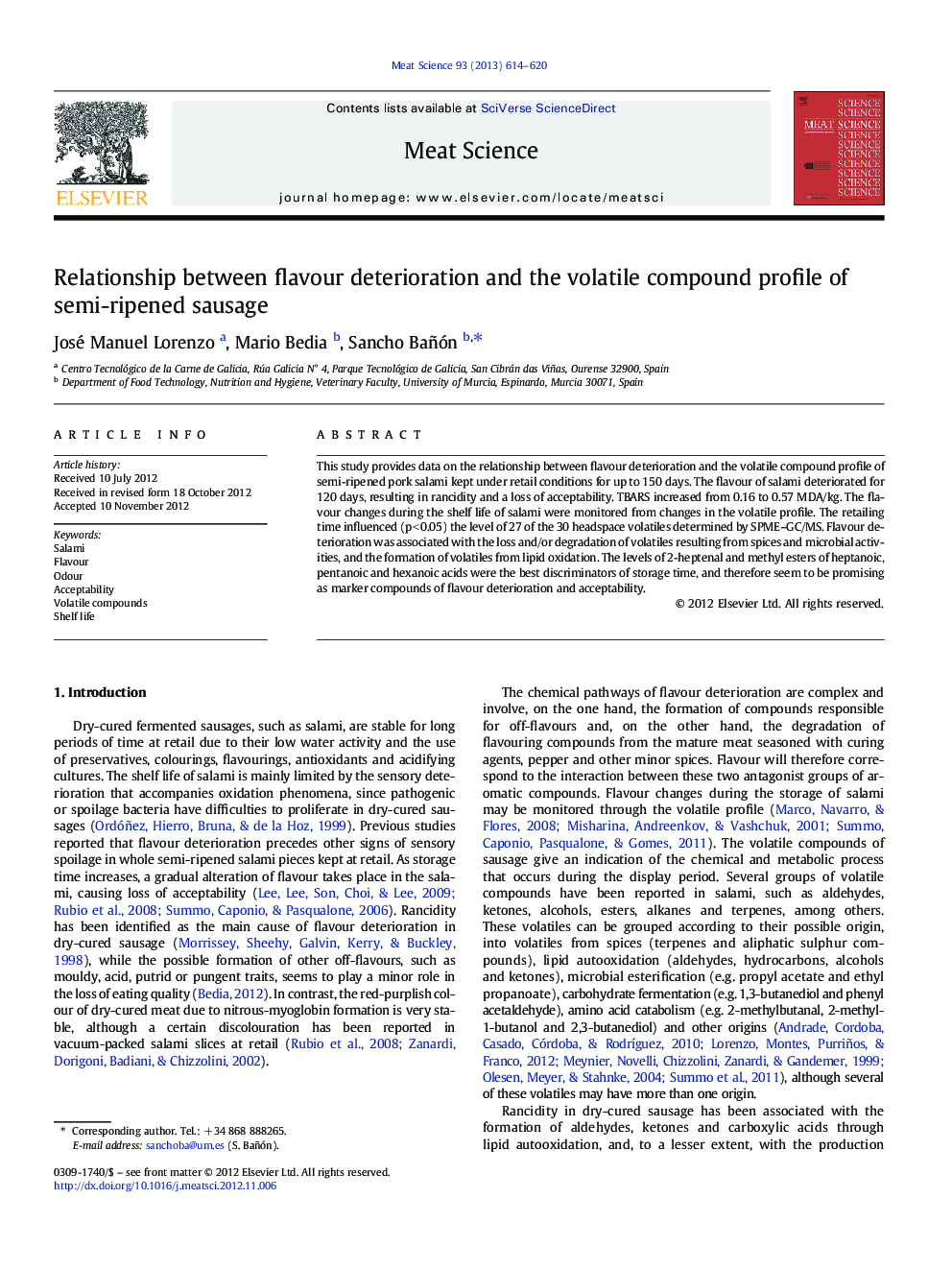| Article ID | Journal | Published Year | Pages | File Type |
|---|---|---|---|---|
| 5791765 | Meat Science | 2013 | 7 Pages |
This study provides data on the relationship between flavour deterioration and the volatile compound profile of semi-ripened pork salami kept under retail conditions for up to 150 days. The flavour of salami deteriorated for 120 days, resulting in rancidity and a loss of acceptability. TBARS increased from 0.16 to 0.57 MDA/kg. The flavour changes during the shelf life of salami were monitored from changes in the volatile profile. The retailing time influenced (p < 0.05) the level of 27 of the 30 headspace volatiles determined by SPME-GC/MS. Flavour deterioration was associated with the loss and/or degradation of volatiles resulting from spices and microbial activities, and the formation of volatiles from lipid oxidation. The levels of 2-heptenal and methyl esters of heptanoic, pentanoic and hexanoic acids were the best discriminators of storage time, and therefore seem to be promising as marker compounds of flavour deterioration and acceptability.
⺠Semi-ripened salami kept at retail for 120 or more days suffers flavour deterioration. ⺠Lipid oxidation, rancidity and loss of acceptability occur during storage. ⺠Flavour deterioration corresponds to changes in the volatile compounds' profile. ⺠2-Heptenal and other volatiles can be used to discriminate the retailing time.
